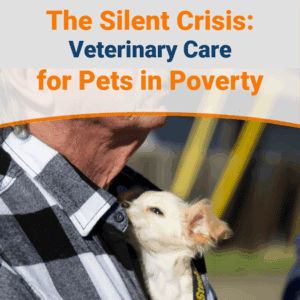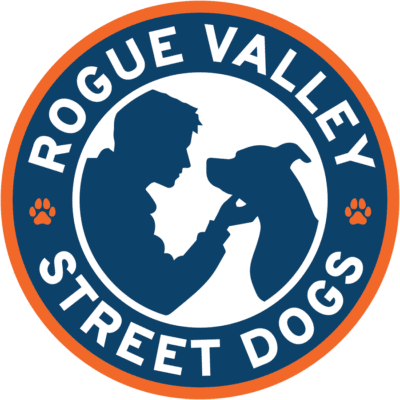Across the United States, more than 20 million pets live in poverty—a number three times greater than the pets that enter animal shelters each year. Within that staggering statistic is another reality that demands attention: 70% of pets living in poverty have never received veterinary care. This is not just an animal welfare issue—it’s a health, compassion, and community stability crisis. The lack of veterinary care for pets in poverty is a silent emergency that affects not only the animals, but also the families who love them and the neighborhoods where they live. Rogue Valley Street Dogs helps alleviate this crisis by providing spay and neuter services for pets living in poverty.
 Why Veterinary Care for Pets in Poverty Is So Critical
Why Veterinary Care for Pets in Poverty Is So Critical
When pets in struggling households never see a veterinarian, the consequences are both personal and communal. Without vaccinations or preventative treatment, diseases like rabies and parvo can spread unchecked. Untreated parasites not only harm pets but can also be passed on to humans. Injuries or illnesses that could have been easily managed often spiral into painful, life-threatening conditions.
That’s why Rogue Valley Street Dogs focuses heavily on providing spay and neuter services—because preventing unwanted litters not only reduces the strain on overwhelmed shelters, but also ensures that limited resources stretch further to keep existing pets healthier and families more stable.
By denying access to veterinary care for pets in poverty, we would be overlooking the needs of animals, creating public health risks, and allowing suffering to persist unnecessarily. Veterinary care, including spay and neuter services, is not a luxury reserved for some; it is an essential component of healthy families and healthy communities.
How Rogue Valley Street Dogs is Bridging the Gap
Here in Southern Oregon, Rogue Valley Street Dogs is working tirelessly to provide spay and neuter services for pets in poverty. By offering these services, along with limited vaccinations and supplies, the organization addresses urgent needs that too often go unmet.
This work has ripple effects that strengthen the entire community:
- Preventing pet overpopulation: Spay and neuter services reduce unwanted litters, easing the strain on shelters.
- Protecting public health: Vaccinations and parasite treatments prevent the spread of illnesses that endanger both people and animals.
- Preserving family bonds: Healthy pets remain a vital source of emotional support for families who may be facing hardship or homelessness.
Pets often represent unconditional love, comfort, and stability for people in poverty. Ensuring access to basic veterinary care for pets in poverty means protecting those essential relationships as much as protecting animal health.
Why Southern Oregon Needs This Support Now
The number of pets living in poverty is rising, and Southern Oregon is not immune. Economic pressures, rising housing costs, and limited resources force many families into impossible choices—rent, food, or medical care for their beloved animals.
When 7 out of 10 pets living in poverty have never seen a veterinarian, we cannot turn away. The lack of basic veterinary care for pets in poverty is not just a statistic—it is a call for action, compassion, and community responsibility.
Rogue Valley Street Dogs is showing Southern Oregon what is possible when we step up to meet this need. While we are unable to support pets with all the veterinary services needed for health issues or emergency situations, we focus on providing spay and neuter services–a basic veterinary service every pet needs but one that most impoverished owners are unable to afford. With support from donors, volunteers, and community partners, this organization can continue to transform the lives of pets—and the people who love them.
Without intervention, more animals will suffer, shelters will become overwhelmed, and families will face heartbreak when they can no longer care for their pets. By investing in basic veterinary care for pets in poverty including spay and neuter services through organizations like Rogue Valley Street Dogs, we can build healthier, safer, and more compassionate communities.
Together, we can make sure veterinary care is not a privilege, but a right every pet deserves.

Reader Interactions